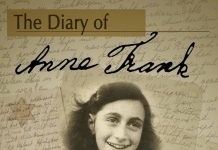 Recap: lib.ru is a massive Russian-language digital library, with both public-domain and copyrighted books, that is largely the work of Muscovite Maksim Eugenievich Moshkow. He recently answered some questions for the TeleRead blog.
Recap: lib.ru is a massive Russian-language digital library, with both public-domain and copyrighted books, that is largely the work of Muscovite Maksim Eugenievich Moshkow. He recently answered some questions for the TeleRead blog.
This is the last in a series of four posts from that interview. Catch up on the beginnings of the library here, e-books vs. p-books and how his site is helping the Russian publishing scene here, and his thoughts on file formats and the ideal e-book reader here.
Today: one man’s hobby– the amount of work it takes to run the library, and the payoff of that effort.
Managing the library
How much time do you spend on the project every day?
4-5 hours
What do you spend most of the time on?
On retyping, dealing with my e-mail inbox, examining and converting e-book files people send me.
How often do you receive new texts?
On average, 10-20 texts per day.
How often is a new text incorrectly formatted?
Almost always. The basic format of texts people send me is Word. It’s not suitable for direct use on the Web. Electronic texts always have to be formatted, so they’re easy to read and put in the library.
Does anyone help you with the work?
At first, no one helped me. Five years ago I hired a programmer who programmed sites for self-publication. Now about 20,000 authors and 12,000 musicians put their works on these sites. Because they’re doing it themselves, I don’t have to deal with their works too– and that’s the biggest help for me. 🙂
This year I received a grant from the government, and now I’m paying people to do a “Russian classics” project for the library (http://az.lib.ru). Their job is to gather and encode public-domain Russian literature, that is, 18th-19th century, and up until 1954.
Webpage statistics
How much traffic does your site get per day?
40,000 readers a day
Do you know where people are visiting your site from?
The audience is proportional to the diaspora of Russian-speaking internet users worldwide:
Moscow- 20%
Petersburg- 5%
All of Russia together- 40%
Former republics of the USSR- 20%
USA + Israel + Germany- 15%
Do you know anything about the people who send you texts?
A few thousand people have sent me books. They live all over the world, almost from every country. Most are Russians, but there’s been Americans, Bulgarians, Polish, Portuguese, Arabs, etc.
The man and his hobby
What’s your favorite book? Is there an e-book version of it?
In my life, I’ve read about 3500 books, and it’s hard to pick out any particular one. I like a lot of books. About half of the books that I’ve read exist in electronic versions.
Do you make money on the library?
I spend my own money on it. A little. You know, it’s a hobby. If I drove expensive cars or smoked, I’d spend more on that than I do on the library.
What other job do you have?
I teach in a computer-learning center (Unix operating system, Internet service, IT tech), and I program and maintain web-sites. Most of these are news-servers, like lenta.ru, gazeta.kg, telesport.ru, and a few others.
What’s your dream for the library?
Do what I need to so the library won’t devour my personal time. Relax.
Do you have a particular goal for this project?
Hard to say. I don’t think about it. I want people to read books. With every year, the number of readers is shrinking, and I’m left hoping that my library will slow the process.
Everyone can contribute
Maksim Moshkow is an excellent example of what one individual can do to improve the quality and availability of e-books worldwide, without even intending to. (As mentioned in the first post, it started out as a personal library.) It’s easy to complain about the lack of good quality e-books and talk about a day when the situation will be better. But how much sooner will we reach that goal if everyone who thinks e-books are a great idea does something small to help out?
It’s true that copyright is an issue when it comes to content, but there are good public-domain books out there that haven’t been digitized. If you have the resources, why not take an hour or two one day and scan an obscure public-domain book? If you like the idea of OpenReader, use the upcoming content creation tools to convert your favorite Gutenberg book to an OpenReader-compatible file while you’re half-watching TV. And it doesn’t take any special equipment or programming knowledge to join Distributed Proofreaders and do a page a day. No one is too busy to put in ten or fifteen minutes, if only a couple times a week. And there are plenty of worthwhile projects out there looking for volunteers.
(Nepotism disclaimer: OSoft president Mark Carey, who is helping create the first OpenReader-compatible software, is my father. Under no parental influence, however, I put my money where my mouth is and generally spend 15+ hours per week proofreading and encoding scholarly literature into OpenReader-compatible e-books.)
Quinn Anya Carey is a BA/MA student in Slavic Linguistics at the University of Chicago.

































Russian books are more likely to be processed through Project Gutenberg Europe than through its American “mothership”, as the former understands the cyrillic script that most, if not all Russian authors use. The Distributed Proofreaders for Project Gutenberg of Europe is at http://dp.rastko.net .
Branko, do you know if Project Gutenberg Europe has looked into partnering with/using texts from lib.ru? The Gutenberg Russian selection as it stands is dismal. What also strikes me as odd is that Gutenberg Europe says it’s “provided by Project Rastko”, but it only has the tiniest fraction of the Serbian texts digitized by that project.
The way these different digitization projects seem to not be working together (correct me if I’m wrong) strikes me as another limitation on the total growth of e-books. Like I wrote in my first post, the “why bother putting in the effort to share it– I have what I need” attitude with digitization projects is a problem in academia, too.
I’ll send an e-mail to Zoran, he should be able to answer your questions and is generally quite fond of partnering. 🙂
Hi, this is Mihailo (mikis) from Project Rastko. Zoran’s been very busy these days, so I’ll try to clarify.
Yes, both Project Rastko and Project Gutenberg Europe have plans and wish to collaborate with lib.ru, and publish as many books from it on PGE as possible.
However, we were quite overworked this year. You are correct that there are hundreds, if not thousands of Project Rastko e-books to be published on PG(E). Also there is almost 500 books on DP Europe (dp.rastko.net) waiting to be post-processed and published.
But, as Maksim said: publishing e-books is still process that takes money, not earn it. So let our Christmass wish be that all this happens in New Year 🙂
Thanks for clearing that up, Mihailo! I’m glad to hear that the different projects are working together. Good luck with the collaboration– I hope more people volunteer to help catch up with the backlog.
Happy New Year to Teleread community!
Thanks Branko for pointing me to this. As Mihailo said, we are seriously overworked. Main task in 2004 and 2005 was to build supranational structure which will serve to many cultures, not just exclusive club of few. We’re building it step-by-step through different paths: Rastko.net, PGE, DPE etc. … and most of it is still to be announced in months to come. For that reasons and with limited resources, we were forced to deliberately neglect Serb/Yugoslav part of the network [www.rastko.org.yu] in 2004 and 2005.
Having strong foundations almost built now–although, with pain and slowly–we expect to have Russian and Serbian books among top 10 language groups of PGE in 2006 or 2007.
Of course, having Moshkow’s Library [one of digital world eminent phenomena] and Maksim himself [Rastko’s friend for many years now], we assume that task as realistic.
Sincerely,
Zoran Stefanovic,
Project Rastko Network
[…] Moshkov created his library in 1994. Every day over 20,000 people visit lib.ru. http://newteleread.com/wordpress/blog/?p=4053 How often do you receive new texts? On average, 10-20 texts per day. […]